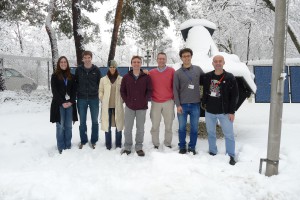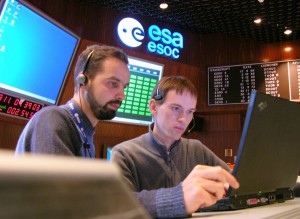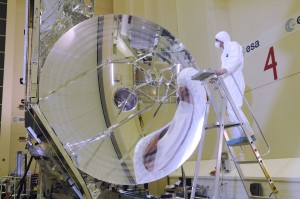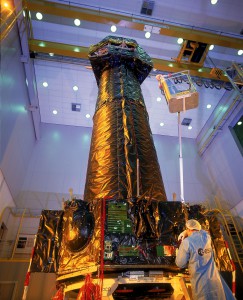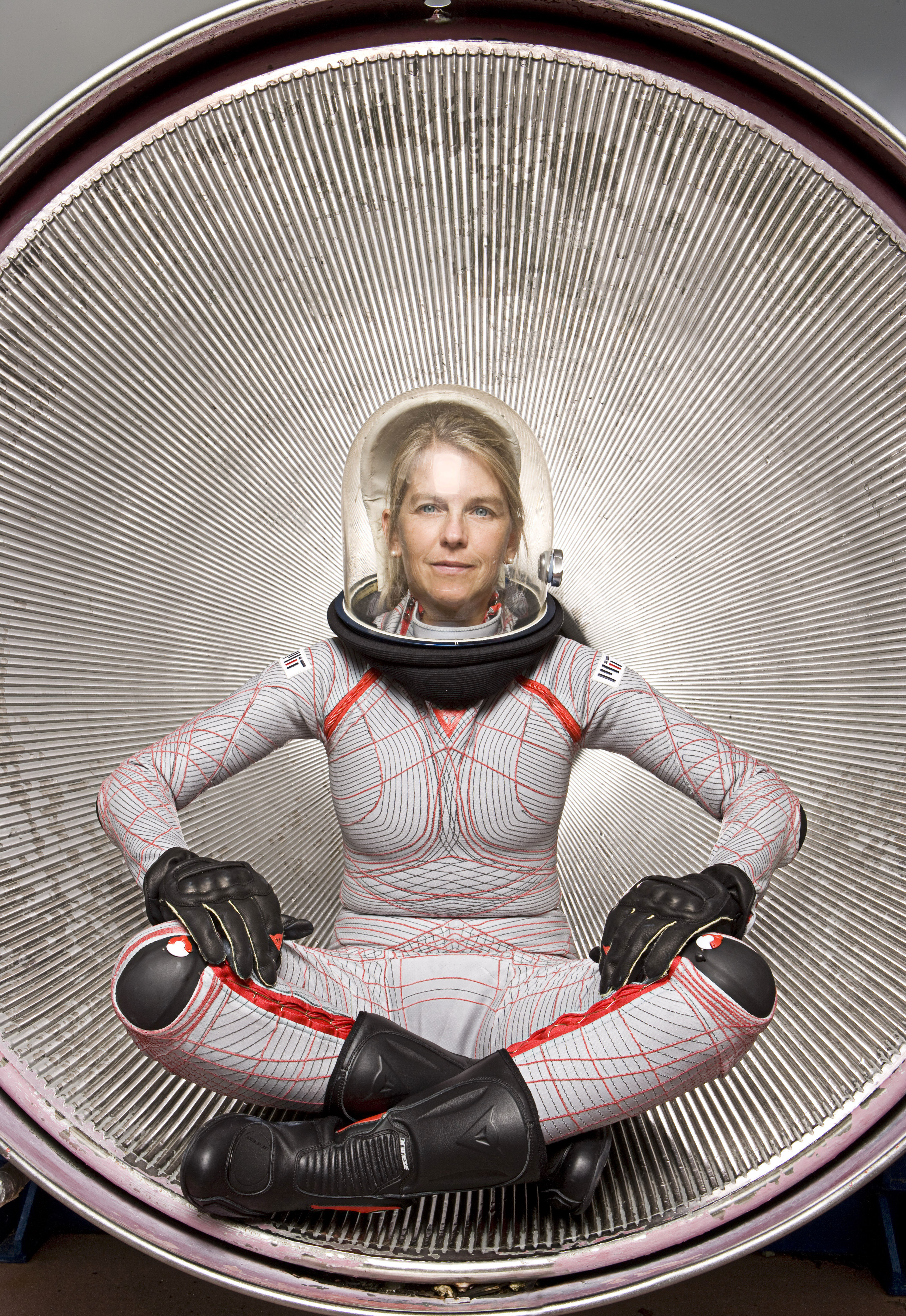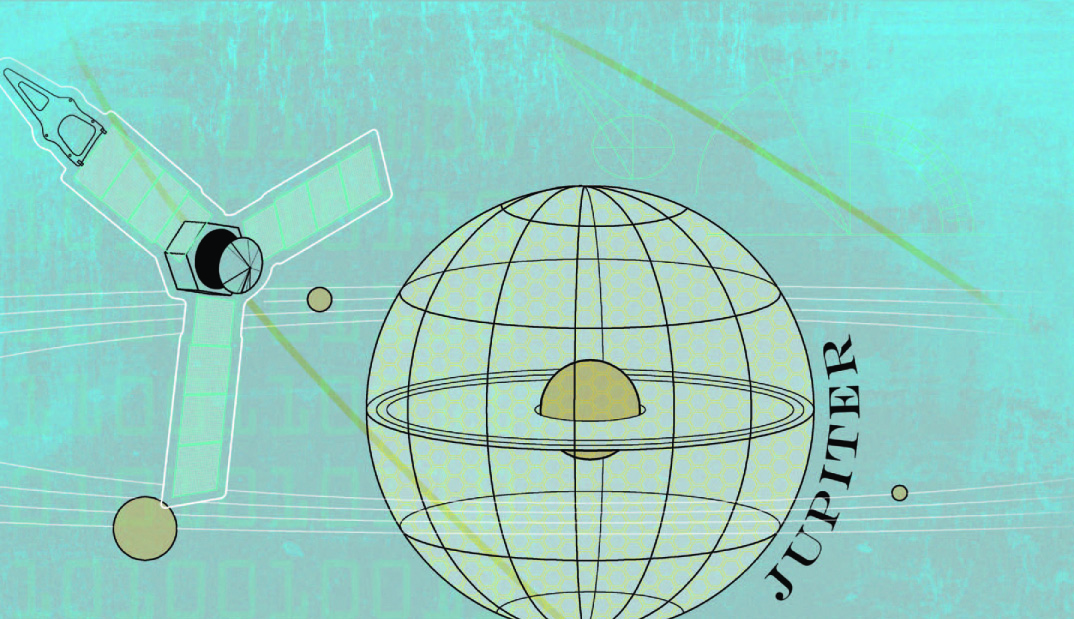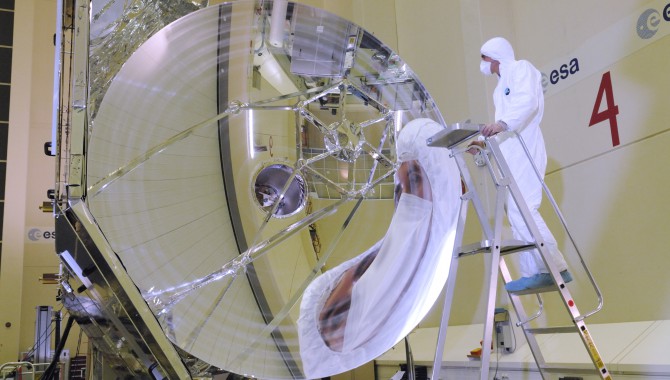
By Alessandro Ercolani
Since joining the European Space Agency, ESA, in 2000, I have developed my whole career at the Department of Ground Segment Engineering.
The main task of my section (HSO-GDS) is to provide mission data systems software—mission control systems, simulators, mission planning systems—to the ESA science (astronomy, interplanetary, and solar) missions controlled from ESOC, the European Space Operations Centre in Darmstadt, Germany.
My initial assignment was the mission control system to operate the Rosetta spacecraft, an ambitious ESA mission to catch a comet in 2014. For three intense years, I participated as software coordinator in the launches of three successful ESA missions: Mars Express (2003), Rosetta (2004), and Venus Express (2005). After later working on the Galileo and Gaia missions, I was awarded the post of head of HSO-GDS in 2009, and life changed quite a bit.
From Technical Officer to People Coordinator
Suddenly the focus of my daily job diverged from classical technical matters to a whole new set of tasks. After a while I realized that I had to change my attitude in order to avoid frustration and be a good support for the people in my section. I had to accept the fact that my direct involvement in development of technical systems was gone forever (no more launches as software coordinator from the main control room, sigh!). And I had to start to thinking about what was needed to allow every section member to work in the best way.
After two years in the post, I’m still learning, but there is one thing I have no doubts about: having technical skills available in the team is no guarantee of success; the quality of the working environment is at least as important.
The Working Environment
We spend a considerable part of our life at work; we see our colleagues for more hours a day than our partners at home. The conditions we experience at work have a fundamental influence on the quality of our lives, so one of a manager’s most important goals is to ensure that people come to work with a good attitude and spend their day in a pleasant environment.
Sounds obvious, right? But it’s easy to lose sight of that fact when technical challenges and deadlines clamor for attention.
What do I mean by a “good working environment?” First and most important for me is to realize that colleagues in the section are trusted and trusting, open, supportive, and friendly people. We are a team of people who work together and try to help each other, rather than a collection of individuals who just ensure that their own projects are successful. Everyone is aware of the others’ tasks: the successes of one project are successes for the whole section. If a project has issues, everyone else feels that they need to give a hand and solve the problem.
The “Space Musketeers”
You may be thinking, “Too good to be true.” Time for a real-life example. At the end of last year, the situation became difficult for Phil, a new team member, who found himself under pressure during his handover period because of multiple demanding tasks.
He had joined the section a few months earlier and was working as the prime data systems manager on the mission control systems (MCS) of Rosetta, Mars Express, and Venus Express. A former member of the software support team for Venus Express at the time of launch, he already had all the technical background needed for the job. Suddenly, one of our core contractors resigned to accept a staff position at the European Meteorological Satellite Organization, and I found myself in the unenviable position of losing a key person involved in the maintenance of MCS for four flying missions: Integral, X-ray Multi-Mirror (XMM), Herschel, and Planck.
I asked Phil to become “the man in the middle” and work with the departing person in order to later transfer the knowledge to the newcomer. The rationale for this decision was that the MCS of Integral and XMM are all based on the same infrastructure version as those of Rosetta, Mars Express, and Venus Express, and he was the best choice from a technical point of view. He also got Herschel/Planck because I wanted to avoid having too many people involved in the handover, and the other members of the section were all under pressure, too.
The causes of the problem were that I assigned too many tasks to him, and some unexpected problems consumed more effort than foreseen.
In case of overload, there is always someone else who can help complete some work, while it can take dramatically long to recover from a burnout.
Luckily, Phil understood the philosophy of the section, so rather than keeping the problems to himself and struggling until the final disaster, he came to me. In case of overload, there is always someone else who can help complete some work, while it can take dramatically long to recover from a burnout. I called an emergency section meeting, explained the situation, and asked for support from the rest of the team. I gave some indications of possible work redistribution, but invited everyone to suggest alternatives and propose ways in which everyone could help with any of the tasks.
Considering that each person is typically following many projects in parallel, I was particularly pleased by the outcome. Most people were already overloaded, but each nevertheless found a way to lend a hand.
One colleague offered to take over all the administrative and managerial tasks on Herschel/Planck (she was the backup data systems manager for Herschel/Planck and essentially switched to a full prime role). Since this would have created problems in the testing schedule for a recent delivery of the Lisa Pathfinder MCS, another colleague offered to give a hand with that, sacrificing a bit of the work on the Gaia MCS, which was in a less critical phase. All people involved in this extra effort identified a few work items that could be postponed to a later date to make room for the new tasks.
It was important to explain to the various missions the phase we were in. I made sure they understood that we had an emergency situation; I explained the details of the handover and clarified that some tasks would have been delayed and some others would have been “degraded” for the next few months. I believe that transparency and honesty helped to gain their support.
When the new core contractor joined our section, the second handover period started quite smoothly and, thanks to the technical skills and good relations among the persons involved, we completed this phase smoothly. Open and frank discussion helped us find the best combination of tasks, and after a few months we were back to a normal situation. One for all and all for one!
I was more or less aware of the steps needed to make things work, but most of the useful hints came directly from the staff during our open discussion. More importantly, I didn’t have to impose my thoughts by telling people, “You now do this, you do that,” because they identified who could help where. If they had not volunteered, I would have had to make a decision myself, of course, but that didn’t happen.
Never Feel Alone
I trust that when someone requests a period of leave he or she has checked that it would not cause problems with the mission, and I approve without questions or further check on my side.
The way work is structured in the section helps this kind of mutual assistance. Everyone has, in principle, the same range of skills and performs similar activities, although on different missions. This allows one person to quickly become proficient in a different missions environment once the specific tasks are identified. At least two people (prime and backup) are assigned to each project in the section, so there is no dependency on a single person for any activity. Having all the knowledge on a subject in the head of a single person is obviously a danger. Everyone should be a valuable asset, but nobody should be indispensable. Having the organization to ensure division of tasks and responsibilities is a complex exercise that results in more effort for people but has obvious benefits.
Anyone can go on leave without putting all their work on hold. The availability of a responsible backup is very important also in case of sickness or job change. Even more important for me is the case of maternity leave. Luckily, ESA staff rules and regulations guarantee exceptionally good conditions for women becoming mothers, and I try to ensure that this event is seen as a fantastic experience and not as a threat to a woman’s career.
Holidays
There is an open goal in the section: everyone should try to use all leave days available in the year. I trust that when someone requests a period of leave he or she has checked that it would not cause problems with the mission, and I approve without questions or further checks on my side. This has worked smoothly so far, has saved me a lot of time, and has increased the sense of responsibility and independence of the individuals. I try to be a good example and typically run short of annual leave before the Christmas holidays.
I stress the importance of balance between work and private life, and balance means that there can be periods where it becomes impossible to use all available leave days. For me, working overtime, including weekends, was the norm between 2002 and 2005. I have supported four launch campaigns in three years, and in that period I accumulated seventy-five days of compensatory leave! In the following years I have used these additional leave days. Overall, our workload follows the phases of the missions we support, so there is a time for sweat, blood, and tears, and a time for snow, sand, and sea.
The International Background
ESA is international by definition, so cultural differences are constantly part of the game. In my section, we have two Brits, two Portuguese, one German/French, and two Italians; two women and five men in total. We are of course different from each other, and we try to understand and appreciate our different views. Sometimes when you set up an appointment, you have to specify whether it is “Spanish time” or “German time.” The first means that you are expected to show up at least half an hour after the time of the appointment.
In some cultures, like the Italian one, it is quite normal to have heated discussions. Voices may be raised and movement of the hands and body language may be a bit extreme, but what to outsiders could seem like the beginning of a physical confrontation is probably just a “lively” conversation.
As long as people are aware of these known characteristics of cultural groups, there is no problem. The moment you have a German waiting half an hour for a Spaniard or an Italian shouting at a Brit, the differences are not fun anymore.
We have an excellent tradition, which started spontaneously, of organizing “cultural evenings” at someone’s place, with food and drinks of the country of origin and very often board games as well. We have, in fact, a board-games tournament spanning the whole year, with an overall classification that determines who holds the “GDS gamer of the year” trophy for the next twelve months.
People First
I believe we live in a kind of small family in our section. Whenever there is some change in the composition of the section, I always try to think about how to preserve this environment. A new candidate is selected not just for technical skills, but also for the capability to integrate in the peculiar environment we have created. I have always been supported by my line management in this approach. I’m convinced that the spirit of the current group can continue for years, even with changes in the team. One of my global goals is to ensure that current values and habits become an integral part of the section’s DNA, and I’m sure that it will not be so difficult to convince newcomers (even a new head of section) to adopt them.
Time will tell whether or not this is a sustainable model. So far our customers are happy with our support. I’m convinced that the quality of our technical output is related to the positive environment we work in. I am aware, naturally, that this situation is in large part due to the combination of a number of lucky factors (size of the section, character, attitude, age of individuals, and type of work) and that there is no single recipe for happiness that applies to all situations.
An obvious enabler for our nice working environment is the favorable conditions offered by ESA. The introduction of flex time, part time, and telework have all facilitated the increase in balance between work and family life. Moreover, the support for sport and social clubs gives people a chance to know each other in various external contexts, and then have a better relationship on the job. I believe we have good foundations for building a socially satisfying and stimulating work environment.
About the Author
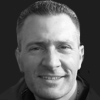 |
Alessandro Ercolani began his career at the European Space Agency (ESA) in 2000 as a software engineer in the department of Ground Segment Engineering in Darmstadt, Germany. He is currently leading the Science Mission Data Systems section, whose task is to provide mission control system and operational simulator software to ESA interplanetary and astronomy missions.E-mail: alessandro.ercolani@esa.int |






